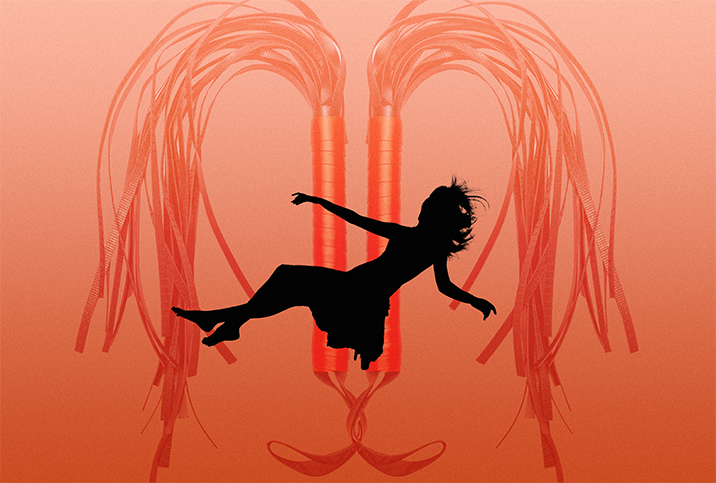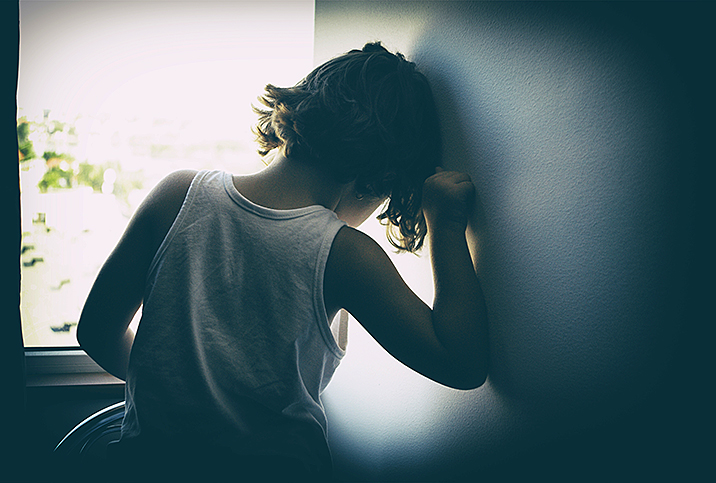Reclaiming Your Voice in the Wake of Sexual Violence

I never got to understand what intimacy was before an abuser poisoned my experience. As a survivor of childhood sexual abuse and assaults as a teenager and adult, developing a healthy connection to my sexuality felt impossible.
And although the taboo on discussing sexual assault—due to movements like #MeToo—is weakening, many survivors still suffer in silence when reconnecting with their sexuality in the wake of sexual harassment, abuse or violence.
Reclaiming a healthy sexuality is like crossing a battlefield—each step can trigger flashbacks and allies may lose patience waiting for their loved one to reach the other side. Although it can feel like a thankless fight, there are many paths that lead back to pleasure. I have waged war on many of them.
Through the power of solo pleasure, therapy and regularly checking in on my boundaries and triggers, I have found a light at the end of a dark tunnel.
Trauma impacts us all differently
When it comes to how sexuality is affected, there is no uniform response. After a sexual trauma, people may experience psychological problems like post-traumatic stress disorder, depression, anxiety disorders or chronic pain.
"It's vital to be mindful of the fact that everyone reacts differently to a traumatic event," explained Mia Sabat, sex therapist for Emjoy, a sexual well-being audio app for women. "Whatever a person feels is a natural response to what has happened, for them."
Personally, I became a promiscuous teenager, bent on burying my trauma in reckless sexual encounters. For others, the trauma manifests as a reluctance to engage in any sexual activity.
"I remember I felt very dead," said sexologist Ness Cooper of her experiences post-sexual violence. "I spent a lot of time in my mind, but I couldn't associate anything with my body, or even consider any sexual pleasure or intimate touch for a long time."
A rarely discussed behavior is when survivors re-create the trauma to escape it. Demi Lovato discussed doing this in her recently released four-part YouTube documentary, "Dancing With the Devil." She went back and had sex with the man who assaulted her in an attempt to reclaim her body.
AnnaLynne McCord, actress and activist, opens up about reclaiming her story after sexual assault. Watch the full interview here.
Following a violent sexual assault a few years ago, I became obsessed with reliving it. I hoped it would form a new narrative centered on my pleasure, rather than my trauma. Instead of empowering myself, I compounded the original trauma, which made it harder to heal from.
"Sometimes survivors get caught up in a pattern of sexual behavior," explained Sabat. "They may develop compulsive behavior to try to undo the trauma, to redo it in another way or to simply understand it."
There are many contributing factors to a survivor's behavior in the aftermath of sexual violence, but shame can be the most destructive. It keeps us silent when talking openly is a crucial ingredient for survival.
"I felt embarrassed and ashamed," said entrepreneur and author Sharenika Lashay. "I didn't want to do anything that would remind me of that night. I was too ashamed to fully open up until I realized I had never told my story, like, eight years later."
Opening up can be a key step
Unlocking the trauma with words allowed me to reengage with sex in a healthy way because I could finally express my thoughts and feelings around it. Every time I spoke about how my experiences had affected me, I felt more able to have sex without dissociating.
"Ensuring you understand how to express yourself in a safe environment or with trusted people allows the experience to be vocalized and begin to set it free from holding it in," said Yasmin Ibrahim from EKHO Wellbeing. "It becomes easier to let it go once you begin to share."
For Cooper, her experiences of sex work played a role in healing her relationship with sex: "I knew what my body could do and I could set the boundaries so the clients could ask, 'Can we do this?' and I could say, 'No.' And that was actually really satisfying, that made me feel a lot better."
Another key component of recovering sexuality after trauma is checking in on our boundaries. My boundaries have shifted after every sexually violent experience, but exploring my body through regular solo sex helps minimize triggers and flashbacks.
If we do not know what we like as individuals, it's more difficult to communicate it with a partner. For those who can access it, identifying the right kind of therapy is important, too. Whether it's talk therapy, psychotherapy or sex therapy, find a way to process that works for you.
There is no 'endpoint' when healing sexual trauma
Survivors must know that there is no such thing as linear progression when it comes to healing sexuality after trauma. We may even heal different parts of our sexuality with completely separate partners.
"I reconnected with different things slowly," Cooper explained. "I relearned to let someone pleasure me, another person I met and connected with that I relearned how to kiss with. I relearned how to have consent. They all came at different stages, with different people."
Triggers and boundary issues can crop up years after an event. Doing regular self check-ins ensures that we maintain an in-depth understanding of our boundaries.
Whatever route you take, reforming your sexuality in the aftermath of sexual violence is an exhausting process. However, there is hope interlaced with all the pain and frustration. With a little patience and a lot of self-love, we can all find a path back to sexual equilibrium.


















